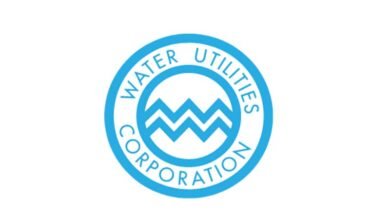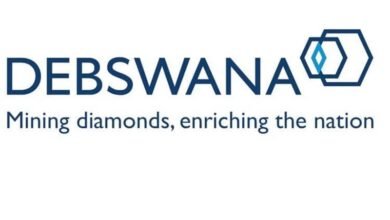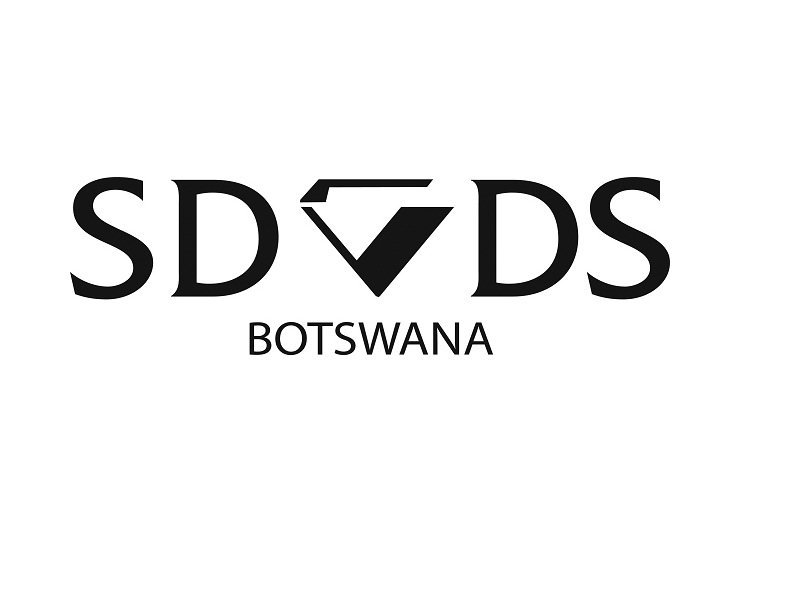Career Assessment Tools: 12 Free Tests to Find Your Perfect Job
Why Are Career Assessment Tools Essential for Your Professional Success?
Are you feeling stuck in your current career or unsure about which direction to take? Career assessment tools have revolutionized how professionals discover their ideal career paths in today’s competitive job market. Whether you’re a recent graduate, contemplating a career change, or seeking to validate your current path, these tools provide invaluable insights into your personality, skills, and work preferences.
How have free career assessment tools evolved? These platforms have become increasingly sophisticated, offering comprehensive analyses that rival expensive consulting services. They help millions of job seekers annually make informed decisions about their professional futures, ultimately leading to higher job satisfaction and career success.
What Science Powers Career Assessment Tools?
How do career assessment tools actually work? These tools utilize scientific methodologies to evaluate various aspects of your professional profile, including personality traits, interests, values, and skills. They typically fall into several key categories:
What are personality-based assessments? These analyze your psychological preferences and behavioral patterns to suggest compatible career paths. Popular examples include Myers-Briggs Type Indicator (MBTI) variations and Big Five personality models.
How do interest inventories function? These assessments focus on your preferences for different types of work activities, environments, and subjects. They help identify careers that align with your natural curiosities and passions.
What makes skills assessments valuable? These evaluate your current abilities and competencies, matching them with careers that require similar skill sets.
Why do values assessments matter? Understanding what matters most to you in a work environment—such as work-life balance, financial compensation, or social impact—helps these tools recommend careers that align with your core values.
Which Are the 12 Best Free Career Assessment Tools Available Today?
1. Is 16Personalities the Most Popular Career Assessment Tool?
Why has 16Personalities become so widely used? This free career test has been taken over one billion times worldwide, providing detailed personality insights based on the Myers-Briggs framework.
How does 16Personalities work?
- Complete 60 questions in approximately 10 minutes
- Receive one of 16 personality types (e.g., INTJ, ENFP)
- Access detailed career recommendations for your type
- Download comprehensive personality reports
What are the main advantages of 16Personalities?
- Completely free with detailed results
- Available in 45+ languages
- Extensive career guidance included
- User-friendly interface
- No registration required
What limitations should you expect?
- Limited customization options
- Can oversimplify complex personalities
- No direct job matching feature
Who benefits most from 16Personalities? Career changers and students exploring career options find this tool particularly valuable.
2. Why Is the O*NET Interest Profiler Considered Most Reliable?
What makes the O*NET Interest Profiler unique among career assessment tools? Backed by U.S. Department of Labor research, this tool stands out as one of the most comprehensive and scientifically validated options available.
How does the O*NET Interest Profiler function?
- Answer 180 questions about work activities
- Receive scores across six interest areas (RIASEC model)
- Browse careers matching your interest profile
- Access detailed occupation information
What are its key strengths?
- Government-developed and scientifically validated
- Links directly to job market data
- Completely free with no advertisements
- Includes salary and education requirements
- Mobile-friendly design
What are the drawbacks?
- Interface feels outdated
- Limited personality insights
- Focus primarily on interests, not skills
Who should use the O*NET Interest Profiler? Students and early-career professionals benefit most from this comprehensive assessment.
3. How Does CareerExplorer Compare to Other Assessment Tools?
What sets CareerExplorer apart from other career assessment tools? This platform offers exceptional depth of analysis, matching users with over 800 careers using proprietary algorithms.
How does CareerExplorer work?
- Complete a 30-minute comprehensive assessment
- Receive compatibility scores for hundreds of careers
- Access detailed career profiles and requirements
- Track your exploration progress
What are CareerExplorer’s main benefits?
- Extensive career database
- Detailed compatibility percentages
- Industry salary data included
- Regular content updates
- Mobile app available
What limitations does it have?
- Requires account registration
- Some premium features locked
- Assessment can be time-consuming
Who gets the most value from CareerExplorer? Those seeking thorough career exploration and research find this tool most beneficial.
4. What Makes Truity TypeFinder Unique for Career Assessment?
How does Truity TypeFinder combine different assessment approaches? This tool merges Myers-Briggs personality typing with Holland Code career matching, creating one of the most sophisticated assessment experiences available.
How does Truity TypeFinder operate?
- Complete 130 questions covering personality and interests
- Receive detailed personality profile
- Access career recommendations based on type
- Compare different career options
What are its primary advantages?
- Dual assessment approach
- High accuracy ratings
- Detailed career descriptions
- Professional presentation
- Research-backed methodology
What are the potential downsides?
- Limited free report details
- Premium version required for full features
- Can be overwhelming for beginners
Who should consider Truity TypeFinder? Professionals seeking detailed personality insights benefit most from this comprehensive approach.
5. How Effective Is the MAPP Assessment for Career Guidance?
What gives the MAPP Assessment credibility? With over 9 million users since 1995, this platform offers one of the longest-running career assessment experiences, providing comprehensive motivation and personality analysis.
How does the MAPP Assessment work?
- Complete a 15-minute assessment
- Receive motivation profile across multiple dimensions
- Access career matches and recommendations
- Download detailed reports
What are its main strengths?
- Established track record
- Quick completion time
- Global career database
- Multiple language options
- Scientific approach
What limitations should you be aware of?
- Dated interface design
- Limited free features
- Premium reports required for detail
Who benefits most from the MAPP Assessment? Those seeking quick career direction guidance find this tool most useful.
How Do These Assessment Tools Compare Side-by-Side?
| Tool | Time Required | Personality Focus | Career Database | Scientific Validity | Best For |
|---|---|---|---|---|---|
| 16Personalities | 10 minutes | High | Medium | High | General users |
| O*NET Interest Profiler | 15 minutes | Medium | High | Very High | Students |
| CareerExplorer | 30 minutes | High | Very High | High | Thorough exploration |
| Truity TypeFinder | 20 minutes | Very High | High | Very High | Professionals |
| MAPP Assessment | 15 minutes | High | High | High | Quick insights |
How Can You Maximize Your Career Assessment Experience?
What Should You Do Before Taking Any Assessment?
How should you prepare for career assessments? Proper preparation significantly improves the accuracy and value of your results.
What environmental factors matter?
- Block 30-60 minutes for uninterrupted time
- Choose a quiet space free from distractions
- Ensure stable internet connection
What information should you gather beforehand?
- Recent job descriptions you’ve found interesting
- List of your strongest skills and abilities
- Notes about work environments you prefer
What expectations should you set?
- Career assessments provide guidance, not definitive answers
- Results should be starting points for exploration
- Multiple assessments often provide better insights than single tests
How Should You Approach Taking the Assessment?
What mindset produces the most accurate results? Your approach to answering questions significantly impacts the usefulness of your results.
How should you answer assessment questions?
- Choose responses based on natural preferences, not what employers want
- Consider your behavior across different situations
- Trust your first instinct rather than overthinking
What completion strategies work best?
- Avoid rushing through questions
- Take breaks if needed for longer assessments
- Save progress when platforms allow it
How Do You Interpret and Use Your Results Effectively?
What should you do after receiving your assessment results? The interpretation and application phase determines whether assessments lead to career success.
How should you review your results?
- Read all provided information, not just career lists
- Pay attention to personality descriptions and work style insights
- Note confidence levels or percentages provided
Why should you take multiple assessments?
- Different tools provide complementary insights
- Consistent themes across results indicate reliable preferences
- Discrepancies help identify areas needing further exploration
What research should you conduct after assessments?
- Investigate education requirements for recommended careers
- Connect with professionals in fields of interest
- Research typical career paths and progression opportunities
How Do Free and Premium Assessment Features Compare?
What Do Free Versions Typically Include?
What can you expect from free career assessment tools? Most platforms offer substantial value without cost, though with some limitations.
Standard free features include:
- Basic personality or interest assessment
- General career category recommendations
- Brief result summaries
- Access to basic career information
When Are Premium Upgrades Worth the Investment?
What situations justify paying for premium assessment features? Understanding when to invest helps you make cost-effective decisions.
Premium features often include:
- Detailed personality reports (10-50+ pages)
- Specific job recommendations with compatibility scores
- Salary and employment outlook data
- Personalized development recommendations
- One-on-one consultation options
When are free assessments sufficient?
- Beginning career exploration
- Seeking general direction
- Validating existing career thoughts
- Working with limited budget
When do premium upgrades add value?
- Making significant career changes
- Seeking detailed development guidance
- Need comprehensive reports for career counseling
- Comparing multiple specific career options
What Do Real Users Say About These Assessment Tools?
How Have These Tools Changed Careers?
What impact do career assessments have on real professionals? User testimonials reveal the practical value of these tools.
Career Change Success Story: “After 10 years in accounting, I felt stuck and unfulfilled. Career assessment tools led me to try 16Personalities and CareerExplorer. Both suggested marketing and communications roles. The results gave me confidence to pursue an MBA in Marketing. Two years later, I’m a Marketing Director at a tech startup and love my work.” – Jennifer L., Marketing Director
Student Success Story: “I was torn between engineering and computer science in college. The O*NET Interest Profiler helped me understand that I preferred working with data and systems over physical construction. The assessment saved me from switching majors junior year.” – David R., Software Engineer
What Are the Most Frequently Asked Questions About Career Assessments?
How Accurate Are Free Career Assessment Tools?
Can you trust free career assessments? Research-based tools like O*NET Interest Profiler and 16Personalities show 70-85% user satisfaction rates. However, results should be viewed as guidance rather than definitive career prescriptions.
Should You Take Multiple Assessments?
Why would you use several different assessment tools? Using multiple platforms provides a more comprehensive view of your career options. Different approaches (personality vs. interests vs. skills) offer complementary insights. Look for consistent themes across results.
How Often Should You Retake Career Assessments?
When should you reassess your career preferences? Career assessments should be retaken every 2-3 years or during major life transitions. Your preferences and circumstances evolve, making periodic reassessment valuable.
Do These Tools Work for Career Changers?
Are career assessments useful for mid-career transitions? Career assessment tools excel at identifying transferable skills and new directions for career changers. Results can reveal opportunities you hadn’t considered while validating change decisions.
How Do You Handle Results That Don’t Match Your Interests?
What should you do when assessment results surprise you? Discrepancies between results and your perceived interests are common and valuable. They may reveal unconscious preferences or suggest exploring new areas. Consider whether your interests are based on actual experience or assumptions.
What Expert Tips Can Maximize Your Assessment Value?
What Timing and Environment Factors Matter Most?
When should you take career assessments for best results? Take assessments when you’re mentally fresh and not facing immediate career pressure. Results are more accurate when you’re not desperately seeking any answer.
How Should You Approach Assessment Questions?
What mindset produces the most reliable results? Answer based on how you actually behave, not how you think you should behave. First responses are often more accurate than overthought answers.
What Should You Do After Receiving Results?
How can you turn assessment insights into career action? Don’t just scan career lists—read all provided information. Use multiple tools to validate results. Combine assessment insights with real-world research about career opportunities and market trends.
How Can You Create a Complete Career Development Strategy?
What Components Should Your Career Portfolio Include?
How do you build on assessment results? Successful professionals integrate assessment results with skills inventory, values clarification, and market analysis. Document your technical and soft skills alongside assessment results.
How Do You Bridge Assessment Results to Career Action?
What steps transform insights into career progress? Compare assessment recommendations with your current qualifications. Identify education, experience, or skill gaps. Use results to guide networking efforts and connect with professionals in recommended fields.
How Do You Integrate Assessments with Job Searching?
How can assessment results improve your job search? Use insights to identify compatible company cultures, guide networking efforts toward relevant industries, and provide language for cover letters and interviews.
What Are Your Next Steps to Career Success?
How Should You Start Your Assessment Journey?
What’s the best approach to begin using career assessment tools? Start with 2-3 assessments from the recommended list, choosing tools that match your current career stage and needs. Compare results for consistent themes and surprising insights.
How Do You Move from Assessment to Action?
What actions should follow your assessment completion? Research recommended careers using comprehensive career resources. Develop a career action plan based on assessment insights and market research. Take concrete steps through networking, skill development, or active job searching.
Why Should You View Assessments as Ongoing Tools?
How do career assessments fit into long-term career management? Remember that assessments provide guidance, not guarantees. Your career success depends on how well you integrate assessment insights with market realities, personal effort, and strategic planning.
Career assessment tools represent powerful resources for anyone seeking career clarity and direction. These 12 free options offer various approaches to understanding your professional preferences, from quick personality insights to comprehensive career matching systems. The key to success lies not just in taking assessments, but in thoughtfully applying their insights to create a strategic career development plan.




